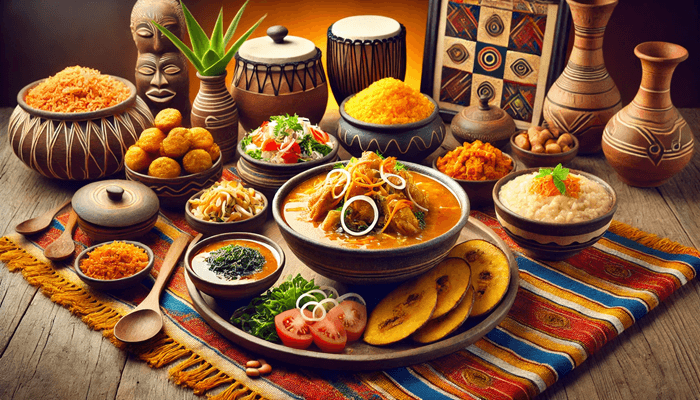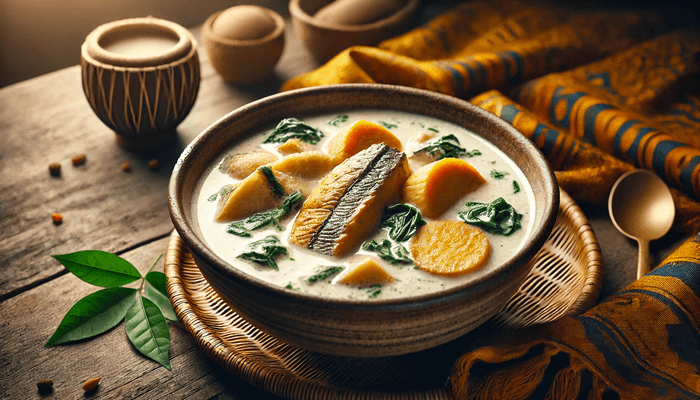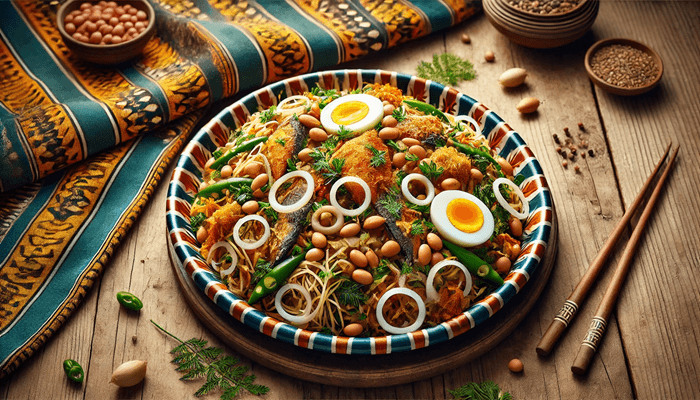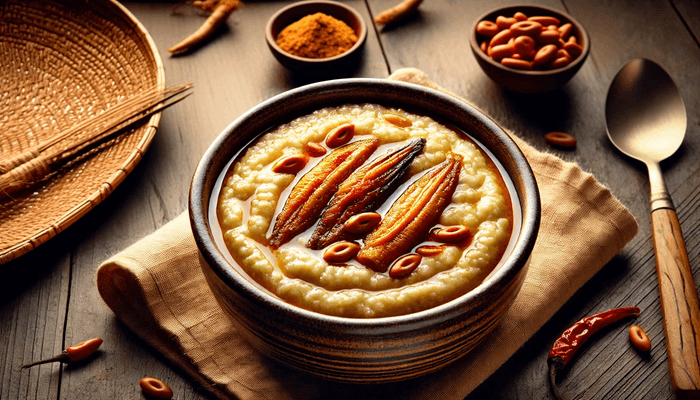Igbo Cuisine and Traditional Foods

Nigeria boasts numerous ethnic groups and the Igbo people are one of them,known for their rich heritage inclusive of their food culture. Igbo traditional foods are a combination of strong flavors, native ingredients, and traditional techniques going from one generation to another. These dishes are not only delicious, but they also serve crucial functions in social contexts, representing hospitality, unity, and tradition.
Popular Igbo Dishes
Ofe Nsala (White Soup)

Known as Ofe Nsala, or simply “white soup,” it is a delicacy among the Igbo people of Eastern Nigeria, and particularly in riverine regions. It takes its name from the lack of palm oil, which features in many other Nigerian soups. Employed to makeOfe Nsala, which is usually made with fresh fish, goat meat or chicken, uziza seeds and yam powder thicken it. Spices: uda (Negro pepper) and uziza leaves impart the soup’s characteristic flavor.
Have you ever heard of Ofe Nsala? It is more than just a meal, while this soup is prepared mostly for special events, it is also prepared for new mothers as it is said to provide nourishment and quick recovery.
Abacha (African Salad)

The Igbos are also fond of abacha commonly known as African salad, it is made from grated boiled cassava which is soaked and dried under the sun. Served with ugba (fermented oil bean), palm oil, pepper, crayfish, onions and garden eggs, the dish is a jumbled collection of crunchy textures and tangy flavors. Topped with any number of vegetables, fish or meat, Abacha can be eaten as a meal or a snack.
It is traditionally served during gatherings, ceremonies, and traditional meetings, representing communal enjoyment and hospitality.
Ukwa (Breadfruit Porridge)

Ukwa, or African breadfruit, is a distinct dish enjoyed in Igboland. This porridge-like dish, flavored with palm oil, crayfish, ogiri (fermented locust beans) and spices, is made by cooking the breadfruit seeds until they are tender. Ukwa can also be roasted or eaten raw as a snack.
Ukwa is culturally important because it is only taken on special occasions and is a delicacy. During family get-togethers and special occasions, it plays a role in strengthening connections and tradition.
Ofe Onugbu (Bitterleaf Soup)
Ofe Onugbu or bitterleaf soup is an everyday soup in Igbo homes. Funny enough, the onugbu leaves’ bitterness is washed out extensively before cooking, as a result, it has a very mildly earthy flavor. The soupy dish is often made from assorted meat, stockfish, dried fish, crayfish, thickened with the cocoyam paste (ede). Palm oil provides richness, and spices like ogiri add aroma.
Ofe Onugbu is a staple of Igbo traditional weddings, burials and other ceremonies and standing for abundance and unity.
The Role of Food in Igbo Social Settings
Food is more than just sustenance in Igbo culture — it is an essential aspect of social and cultural life. Breaking bread is an expression of unity, hospitality and respect for tradition. Food is used to celebrate momentous events: births, marriages, burials, and specific food is prepared for such occasions.
1. Cultural significance
During traditional weddings (Igba Nkwu) Ofe Onugbu and pounded yam is also served to showcase the wealth and hospitality of the family. Kola nuts and palm wine are deeply culturally symbolic as well.
2. Community Bonding
Food helps bond within community during gatherings in villages, festivals and age groups. Abacha, for one, is commonly served at such informal meetings to foster camaraderie.
3. Medicinal and Nutritional Needs:
Some dishes (like Ofe Nsala) are made specifically for postpartum mothers or the sick — because they are believed to have medicinal and sustaining qualities.
4. Symbol of Respect and Generosity
In Igbo tradition, there is no such thing as a visitor who cannot be offered food, however basic it may be. These acts of hospitality demonstrate consideration and concern for others.
Igbo cuisine is rich and colorful with the people’s identity, culture and values. From the soothing heat of Ofe Nsala or the collective delight of sharing Abacha, these fuddles tether people to their genesis, but also to each other. Through every delightful bite, they embrace tradition and community, and in so doing, they guard the legacy of their cuisine for generations yet to come.




